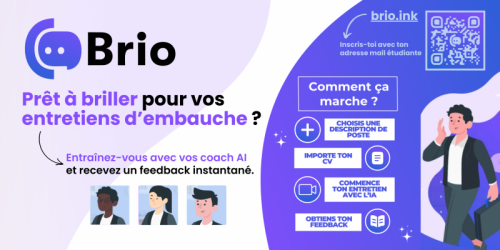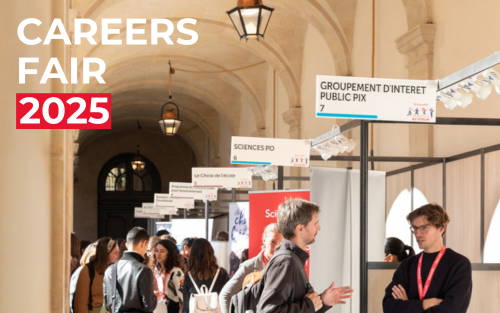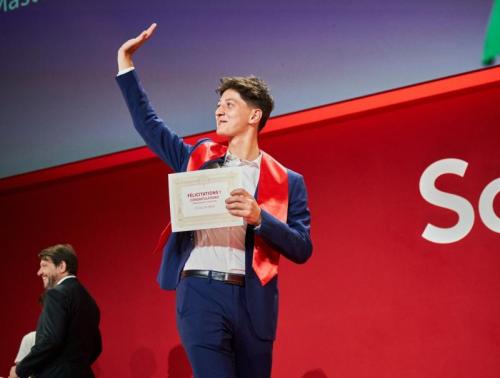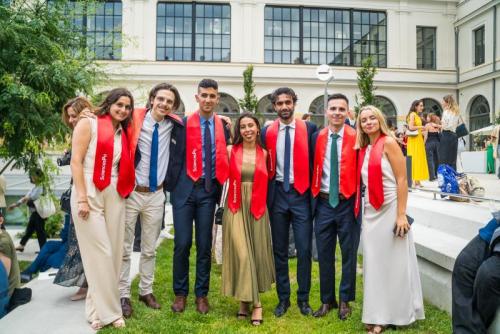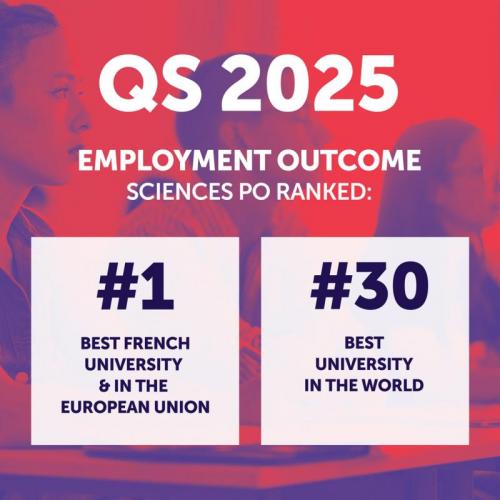How to write CVs

HOW to write a successful CV?
PUT YOURSELF IN THE employer'S SHOES!
Ask yourself the right questions
When first writing a CV, the tendency is often to describe one’s academic and professional background in detail. A major mistake… A CV is a communication tool, meant to clearly express one's objective (usually a specific internship or job), and should be geared towards the future. Before you launch into the writing of your CV, be clear about your professional project . "Which kind of internship or job am I looking for, specifically?" The more precise you are in setting your objective/goals, the more salient your CV will be, and the more impact it will have on the recruiter.
Give your CV a title
Considering that most recruiters will spend an average of 10 seconds reading a CV, the best way to catch their attention is to give it a title between the sections of "civil state" and "education”, indicate - in a boxed test if possible - the title of the internship or the job you wish to apply for, as well as your availabilities. The message you wish to convey will be clearer with a title: the employer will know what your intention is, and will be more likely to study your CV in detail.
Pay attention to the format
- One page, one sided, A4
- Section-headings should be underlined, and sections clearly divided (Title, Personal facts, Education, Work Experience…),
- Font and size should be legible and clear (Times, Arial, Calibri, size 11 or 12),
- Dates (on the left) and text (on the right) should be aligned,
- Any important information (diploma, firm, languages spoken…) should be in bold.
Your CV should be clear and easy to read, so as to allow employers to immediately take note of the components most relevant to them.
Select the information
Your CV is a communication tool and its purpose is to obtain an interview:
- Include only information relevant to your application, and which you think could interest recruiters.
- For each experience included, ask yourself the following questions: "What message am I trying to convey to the recruiter by mentioning this experience?" "What does it say about me?"
Structure the information
- Avoid long sentences when presenting your academic background.
- When detailing your working and academic experiences, use hyphens or bullet points and indicate the tasks you performed, the skills you acquired, and, if possible, the results you achieved.
Picture or not, that is the question
A picture is not mandatory. It may catch a recruiter’s eye and allow them to put a face to your application, but choose your photo carefully! No ID or passport-type photographs.
Chose a professional picture (similar to the ones on the professional network LinkedIn); and, as it is about displaying an “image” of yourself, ask your friends and family to pick the picture which best represents you.
Careful: No photo for English resumes!
Put your CV to the test
-
Ask your family and friends to browse your CV for 10 seconds, then have them explain what they remember of it.
-
If what they remember matches the message you wanted to convey, and they give you positive feedback, then you are ready to submit it.
-
If not, keep working on your CV and try again with other people. Don't give up, you can do it!
FOR FURTHER INFORMATION
Register for a Sciences Po Careers workshop on CVs
Template resumes in English by The Muse
"185 Powerful Action Verbs That Will Make Your Resume Awesome" by The Muse



